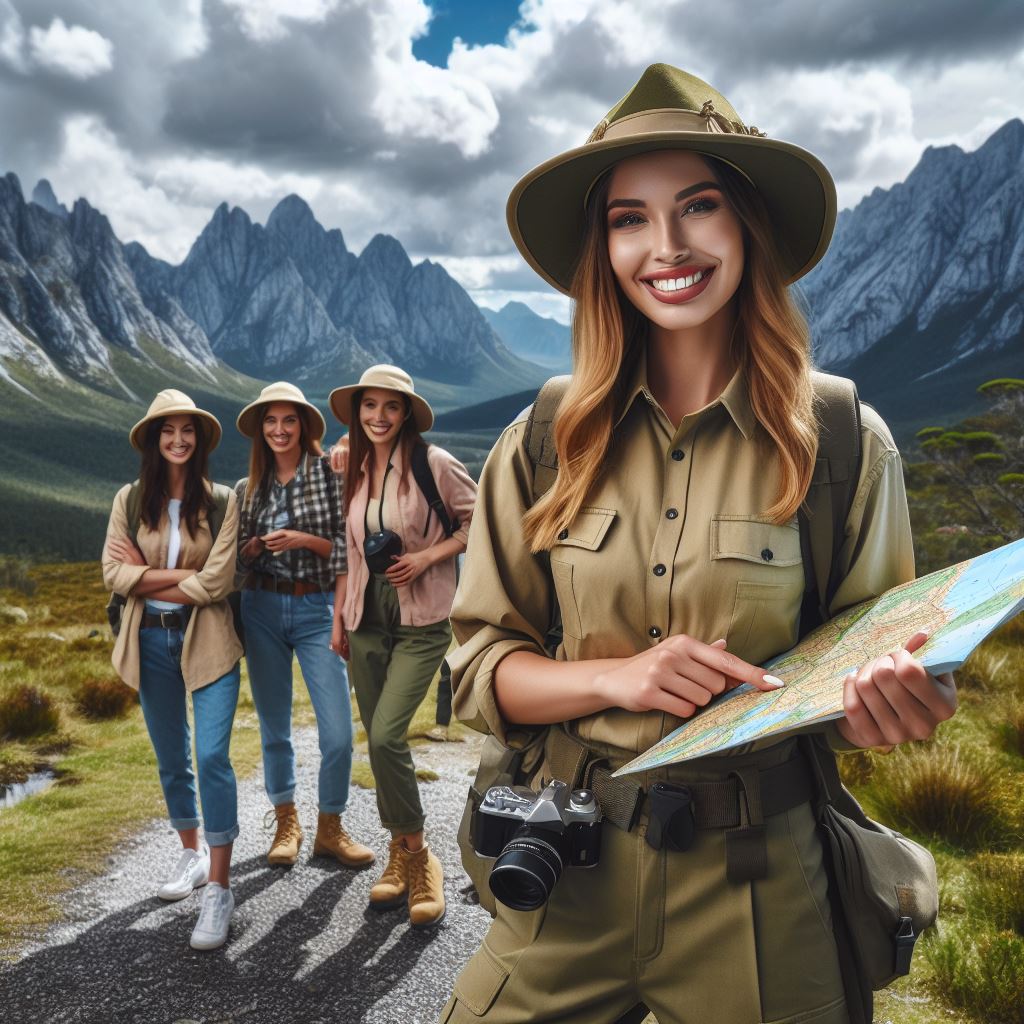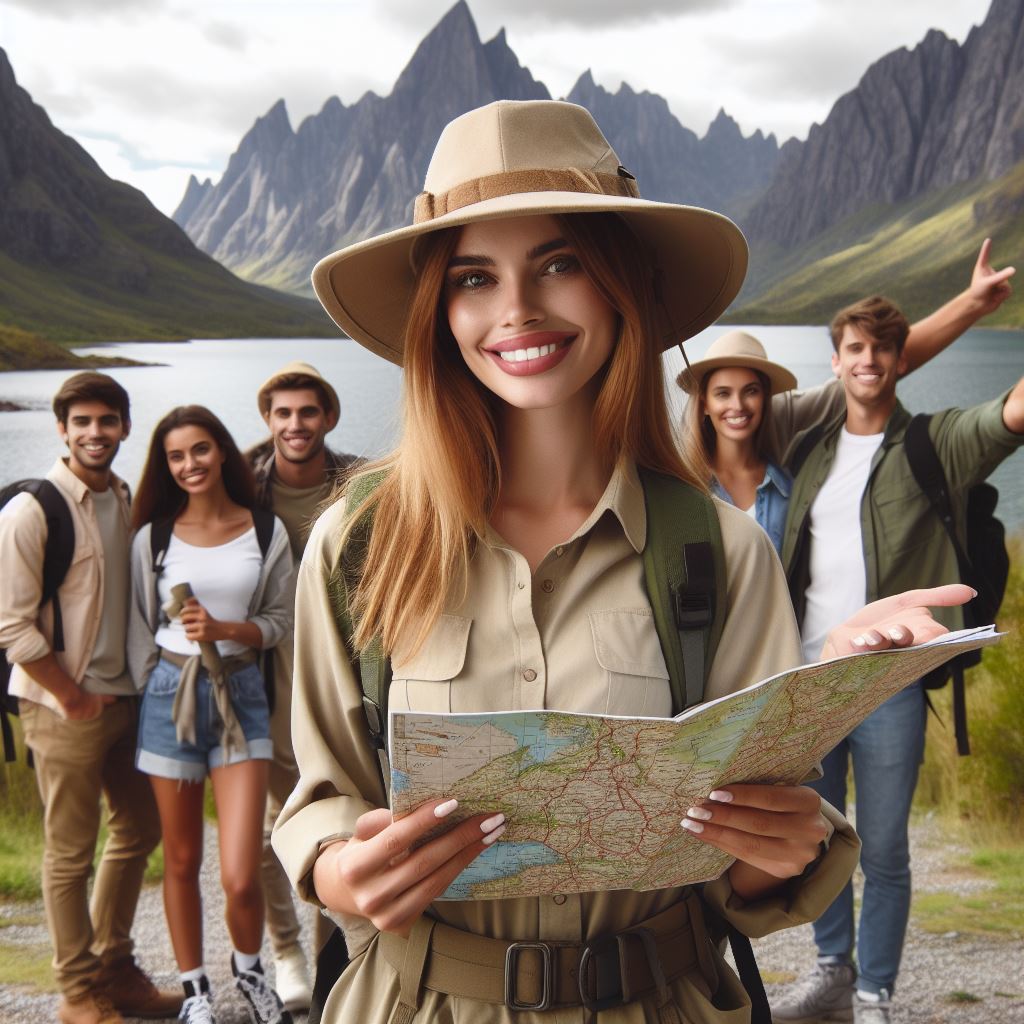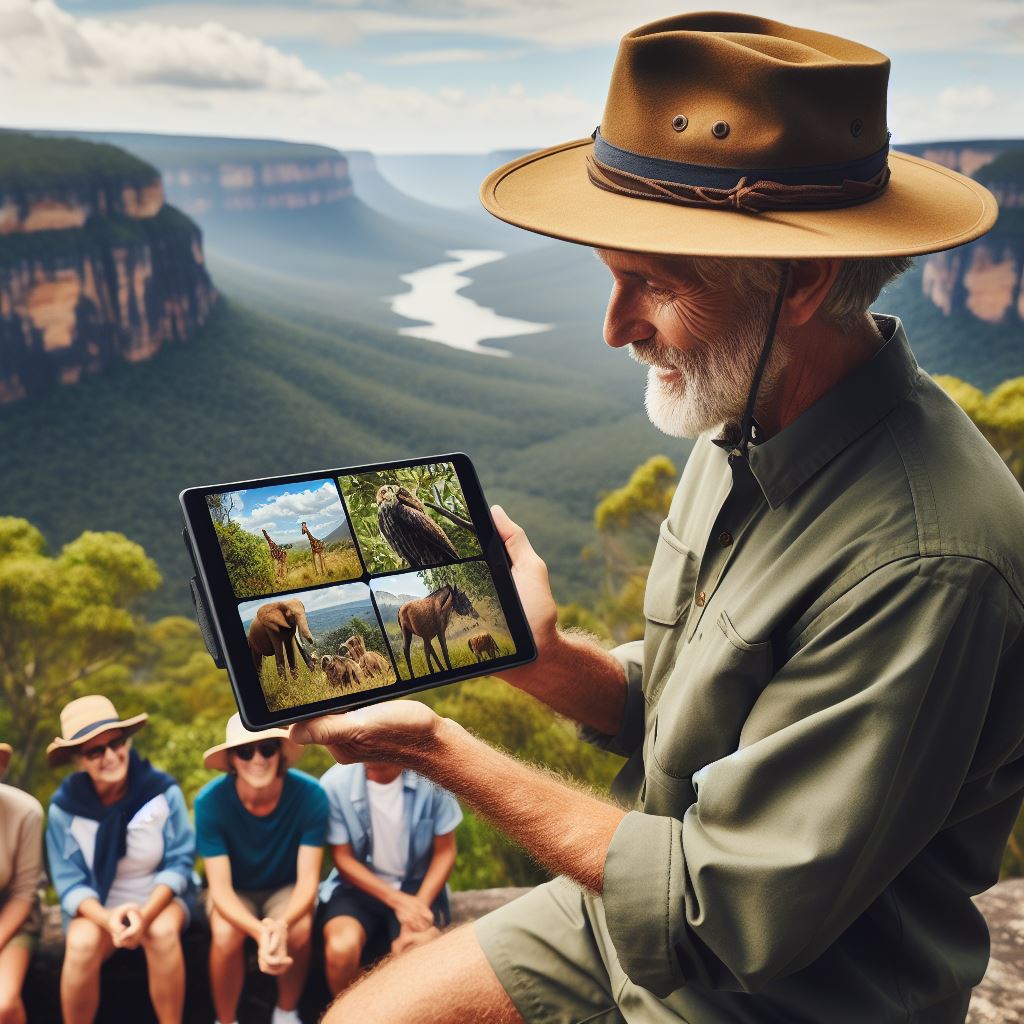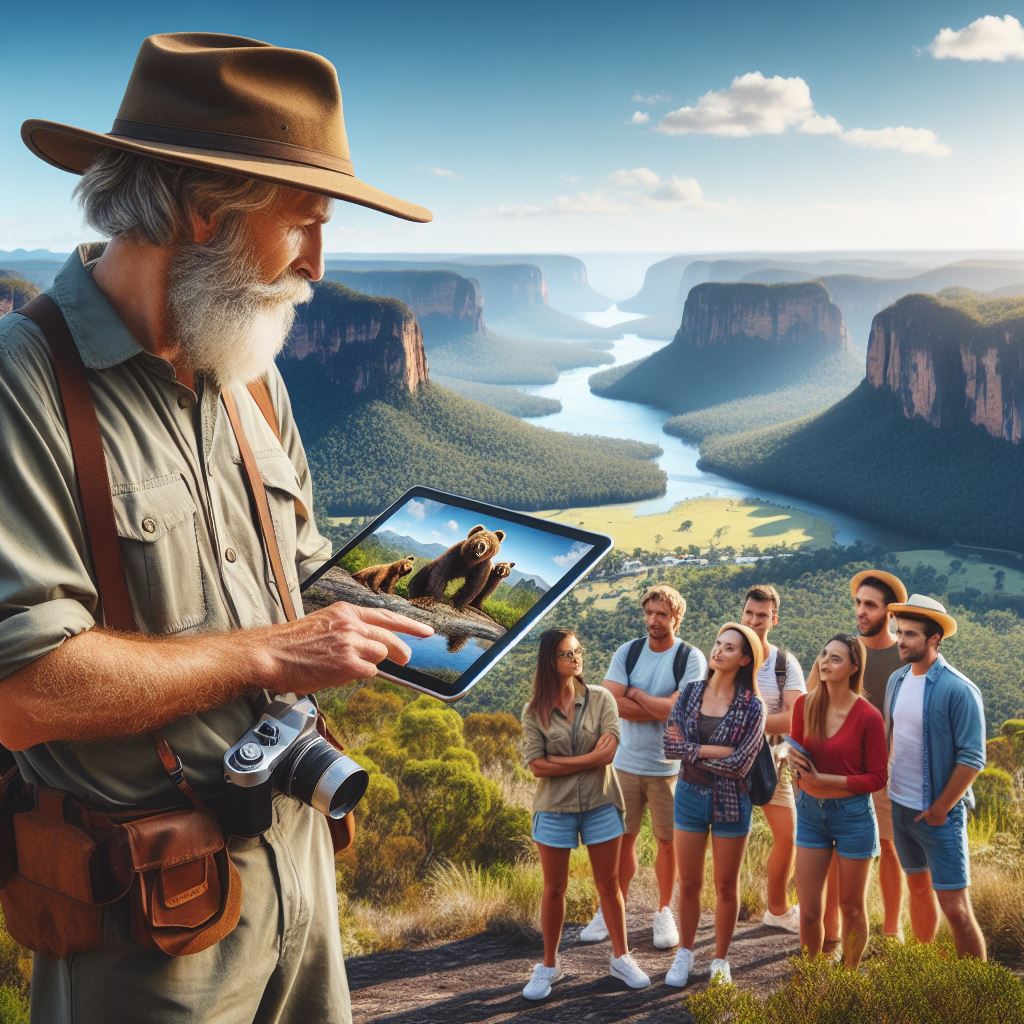Introduction
Eco-tourism is a form of travel that focuses on responsible exploration and appreciation of a destination’s natural beauty and cultural heritage.
It aims to conserve the environment, support local communities, and provide educational experiences for travelers.
With the growing concern for the environment, eco-tourism has become an increasingly popular choice for conscious travelers.
In recent years, the demand for eco-tourism has skyrocketed.
Travelers are now seeking meaningful experiences that allow them to connect with nature and immerse themselves in local cultures.
People are becoming aware of the impact traditional mass tourism has on the environment and are actively looking for alternatives that limit their ecological footprint.
Within the realm of eco-tourism, guides play a pivotal role.
They are the link between travelers and the destination, acting as interpreters and educators.
Guides provide valuable knowledge about the local flora, fauna, and cultural significance of the area.
They also promote environmental conservation practices, ensuring tourists understand the fragility of the ecosystem and adhere to responsible behaviors.
The impact of guides goes beyond education.
They facilitate meaningful interactions between travelers and local communities, fostering mutual respect and cultural exchange.
Guides ensure that interactions are respectful and beneficial for both travelers and locals, supporting economic development and cultural preservation.
However, the role of a guide is not without challenges.
They must balance the desires of travelers with the need to protect the environment from over-tourism.
Guides must emphasize sustainable practices, such as minimizing waste, respecting wildlife habitats, and supporting local businesses and artisans.
In essence, eco-tourism is a growing trend driven by travelers’ desire to explore responsibly and sustainably.
Guides in eco-tourism play a crucial role in educating and facilitating meaningful experiences while minimizing negative impacts.
Their expertise and commitment to conservation are essential in preserving the beauty and cultural significance of eco-tourism destinations.
Importance of a Guide in Eco-Tourism
A guide plays a crucial role in eco-tourism by helping tourists understand and appreciate the environment. By providing educational information about biodiversity and conservation, guides enhance visitors’ knowledge and awareness.
Moreover, guides ensure tourists’ safety in nature-based activities. They possess the necessary expertise to navigate through natural landscapes and handle any potential risks or challenges that may arise.
Another significant aspect of a guide’s role is facilitating positive interactions between tourists and local communities. Guides act as cultural ambassadors, bridging the gap between travelers and residents, promoting mutual understanding and respect.
Guides also promote responsible tourism practices, ensuring that visitors leave a minimal impact on the environment while maximizing the benefits for local communities.
They educate tourists about sustainable behaviors and encourage them to actively participate in conservation efforts.
Additionally, experienced eco-tourism guides possess a deep understanding of the delicate ecosystems and fragile habitats. They are able to share valuable insights, allowing tourists to develop a greater appreciation and knowledge of the natural world.
Providing educational information about biodiversity and conservation
In an era where environmental issues are increasingly crucial, guides have the power to inspire tourists to become advocates for environmental conservation.
By highlighting the beauty and significance of ecosystems, guides motivate visitors to take action and make sustainable choices in their daily lives.
Furthermore, guides often have a local perspective and can offer authentic cultural experiences during eco-tourism trips.
They share indigenous knowledge, traditions, and stories, enriching the overall travel experience and fostering cross-cultural understanding.
Guides also serve as interpreters, helping tourists decipher the complexities of ecosystems and their intricate interconnections.
They explain the relationships between different species and how environmental changes can have far-reaching consequences.
Furthermore, a guide’s presence can have a positive economic impact on local communities.
Guided eco-tours often support local businesses, such as accommodations, restaurants, and handicrafts, contributing to the local economy and creating employment opportunities.
In summary, a guide plays an essential role in eco-tourism by educating, ensuring safety, facilitating interactions, and promoting responsible practices.
Their contribution goes beyond guiding and enhances the overall eco-tourism experience for tourists while benefiting the environment and local communities.
Read: The Rise of Female Chefs in Australia’s Kitchens
Responsibilities of a Guide in Eco-Tourism
Knowledge and expertise in local flora, fauna, and ecosystems
- Guides in eco-tourism must possess in-depth knowledge about the local plants, animals, and the overall ecosystem.
- They should be able to identify various species and inform tourists about their characteristics and importance.
- Understanding the interconnections within the ecosystem helps guides provide a comprehensive experience to visitors.
Guiding ethical and sustainable practices among tourists
- Eco-tourism guides have a responsibility to educate tourists about ethical behavior and encourage sustainable practices.
- They should emphasize minimizing waste, respecting wildlife, and following designated trails to avoid disturbing ecosystems.
- Promoting responsible tourism ensures that the natural environment and its inhabitants are not harmed.
Promoting respect for the environment and cultural sensitivity
- Guides play a crucial role in sensitizing tourists about the cultural and environmental significance of the places they visit.
- They should encourage visitors to respect local traditions, customs, and practices.
- By fostering cultural sensitivity, guides help create a harmonious and respectful atmosphere between tourists and local communities.
Assisting in minimizing negative impacts on fragile ecosystems
- Guides have the responsibility to educate tourists about the fragility of ecosystems and the potential impact of their actions.
- They should advocate for responsible practices such as not littering, avoiding the use of harmful chemicals, and not disturbing wildlife.
- Guides can also provide alternatives to potentially harmful activities, ensuring a minimal ecological footprint.
In review, a guide in eco-tourism holds significant responsibilities in promoting sustainable and responsible tourism practices.
Their knowledge and expertise in local flora, fauna, and ecosystems allow them to provide enriching experiences to visitors while minimizing negative impacts on fragile environments.
By guiding ethical and sustainable practices among tourists, they contribute to the preservation of natural and cultural heritage.
Ultimately, the role of a guide in eco-tourism extends beyond showcasing the beauty of nature to educating and inspiring people to become responsible stewards of the environment.
Read: Eco-Friendly Travel: Agents Leading the Way
Learn More: Creating Inclusive Events in Australia Today
Impacts of Guides on Sustainable Tourism
Strengthening local economies and communities
- Local economies benefit from the employment and income opportunities created by eco-tourism guides.
- Guides help in promoting local businesses, such as accommodations, restaurants, and souvenir shops.
- By supporting these businesses, guides contribute to the economic growth of the surrounding communities.
Encouraging preservation of natural resources and biodiversity
- Guides play a crucial role in educating tourists about the importance of preserving natural resources.
- They raise awareness about the fragility of ecosystems and the need to protect biodiversity.
- Through guided tours, visitors gain a deeper understanding of the environment and are more likely to appreciate its value.
Promoting adherence to conservation regulations and guidelines
- Guides ensure that tourists follow conservation regulations and guidelines, minimizing their impact on the environment.
- They educate visitors on responsible behaviors, such as not littering or disturbing wildlife.
- By enforcing these rules, guides help maintain the ecological integrity of the destinations they visit.
Fostering a sense of responsibility and stewardship in tourists
- Guides play a crucial role in shaping tourists’ mindset towards sustainable practices.
- They encourage responsible travel behavior, such as choosing eco-friendly accommodations and transportation options.
- Guides inspire visitors to become stewards of the environment, promoting long-term sustainability.
In essence, eco-tourism guides have a significant impact on sustainable tourism. They not only strengthen local economies and communities, but also encourage the preservation of natural resources and biodiversity.
Guides play a crucial role in promoting adherence to conservation regulations and guidelines, ensuring the sustainability of destinations.
Moreover, they foster a sense of responsibility and stewardship in tourists, inspiring them to adopt sustainable practices even beyond their travels.
As eco-tourism continues to grow, the role of guides becomes increasingly vital in creating a positive impact on both the environment and the communities that rely on tourism.
Read: Salary Guide: Travel Agents in Australia
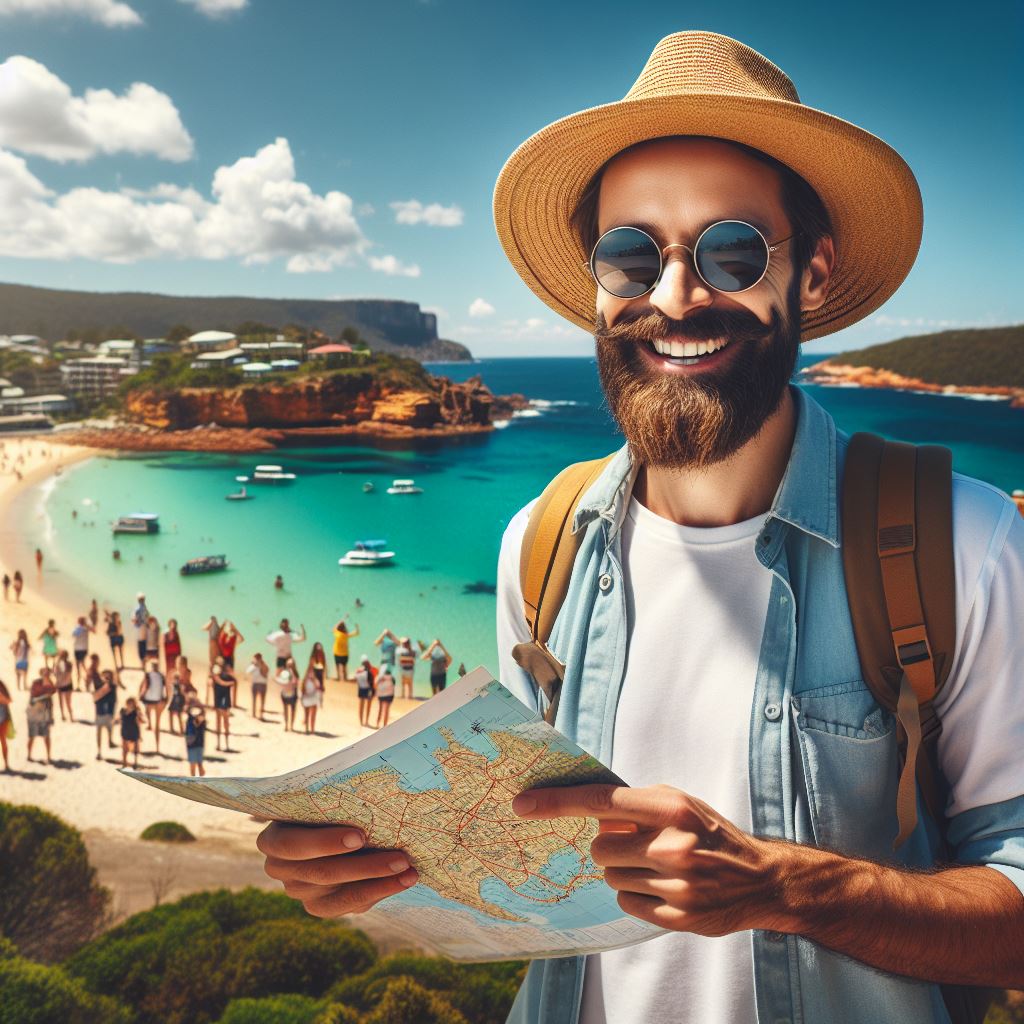
Skills and Qualities of a Successful Guide in Eco-Tourism
A successful guide in eco-tourism needs to possess a range of skills and qualities that enable them to effectively navigate the challenges and responsibilities of their role. These skills and qualities include:
A guide’s role in eco-tourism goes beyond simply accompanying tourists on trips.
They have a significant impact on shaping tourists’ perspectives and actions, making it crucial for guides to possess the skills and qualities necessary for a successful and meaningful experience.
Your Personalized Career Strategy
Unlock your potential with tailored career consulting. Get clear, actionable steps designed for your success. Start now!
Get StartedIn-depth knowledge of the environment and local culture
A guide must have a deep understanding of the environment and local culture in order to provide accurate and informative guidance to tourists. This includes knowledge of flora and fauna, ecosystems, local customs, traditions, and history.
By having in-depth knowledge of the environment and local culture, a guide can provide tourists with accurate and insightful information, allowing them to develop a deeper appreciation for the natural and cultural wonders they encounter.
This knowledge also enables guides to answer questions and address concerns, enhancing the overall educational value of the tour.
Strong communication and interpersonal skills
Effective communication is essential for a guide as they need to convey information clearly and engage with tourists in a friendly and approachable manner.
Building rapport and fostering positive relationships is crucial to ensuring a memorable and enjoyable experience for tourists.
Strong communication and interpersonal skills are essential in establishing a positive and engaging environment for tourists.
Guides who can effectively communicate information in an interesting and understandable manner can captivate tourists’ attention and inspire their interest in eco-tourism.
This can, in turn, lead to increased awareness and behavioral changes towards more sustainable practices.
Leadership and problem-solving abilities
A guide should possess leadership qualities and the ability to take charge in various situations. They should be able to make decisions quickly, think critically, and solve problems effectively.
This is particularly important in unexpected or challenging circumstances that may arise during eco-tours.
Leadership and problem-solving abilities are crucial for guides to handle unexpected situations that may arise during eco-tours.
Whether it’s addressing a medical emergency or managing logistical challenges, guides who can take charge and make informed decisions instill confidence in tourists and ensure their safety and enjoyment.
Passion for conservation and sustainable practices
A successful eco-tourism guide should have a genuine passion for conservation and sustainable practices. They should be committed to educating tourists about the importance of preserving the environment and promoting environmentally friendly behaviors.
Passion for conservation and sustainable practices is perhaps the most important quality a guide can possess.
When guides genuinely care about the environment and demonstrate their commitment to conservation, tourists are more likely to be inspired and motivated to adopt sustainable behaviors.
Guides can act as powerful ambassadors for eco-tourism, influencing tourists to make conscious choices that benefit the environment and local communities.
In fact, the skills and qualities of a successful guide in eco-tourism have a significant impact on the overall experience of tourists and the effectiveness of eco-tourism as a conservation tool.
Guides who possess in-depth knowledge, strong communication and leadership skills, and a genuine passion for conservation can inspire tourists, enhance their understanding, and encourage sustainable practices.
It is important for guides to continuously develop these skills and qualities to ensure the continued growth and success of eco-tourism.
Read: Travel Agents: The Future in Aussie Tourism
Discover More: Fusion Foods: Aussie Chefs Breaking Boundaries
Conclusion
In concluding our exploration, the indispensability of a knowledgeable guide in the realm of eco-tourism resounds as a guiding beacon for conscientious travelers.
Their role is not merely that of a companion but a vital orchestrator, shaping the narrative of sustainable and responsible tourism.
The intricate ecosystems and fragile environments inherent to eco-tourism necessitate the presence of a guide who serves as a custodian of knowledge.
A guide becomes the bridge between tourists and the delicate natural surroundings, offering invaluable insights that transcend the superficial and foster a profound connection with the environment.
Active engagement with knowledgeable guides is pivotal in promoting sustainable and responsible tourism.
Guides serve as ambassadors of conservation, educating visitors about the fragility of ecosystems, local flora and fauna, and the impact of human activities.
Through their stewardship, guides actively contribute to the preservation of natural habitats and the fostering of a mindful approach to travel.
To those seeking transformative travel experiences, the choice of eco-tourism guided by knowledgeable experts is encouraged.
Such a selection ensures not only a deeper understanding of the natural wonders but also actively contributes to the preservation of biodiversity.
Embrace the enriching journey of eco-tourism with a knowledgeable guide, forging a path that harmonizes exploration with environmental stewardship.
In the grand tapestry of travel, let the role of a guide be acknowledged as more than a companion; it is a custodian of ecological wisdom, a catalyst for sustainable exploration, and an architect of experiences that transcend the ordinary.
Choose eco-tourism with a knowledgeable guide – a decision that not only enriches personal experiences but also plays a vital role in the larger narrative of responsible and sustainable tourism.

